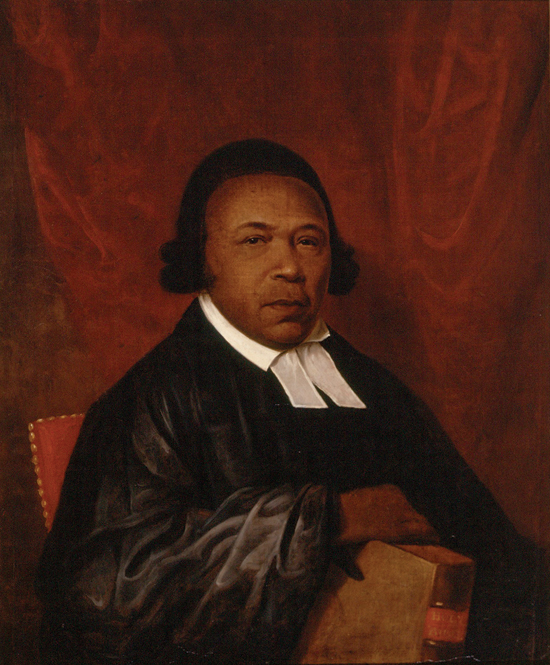by Sarah Brock
Psalm 137:1-6
Isaiah 11:1-5; Galatians 5:1-5; John 15:12-15
The Feast Day of Absalom Jones, Holy Women Holy Men pg. 220
Set us free, heavenly Father, from every bond of prejudice and fear: that, honoring the steadfast courage of your servant Absalom Jones, we may show forth in our lives the reconciling love and true freedom of the children of God, which you have given us in our Saviour Jesus Christ, who lives and reigns with you and the Holy Spirit, one God, now and for ever. Amen.
I have a confession to make. I am terrified of talking about race and racism in America. In part, I think, because it feels so easy to offend by misspeaking- unintentionally, from a place of ignorance and inexperience, or otherwise. In part because it forces me to concretely acknowledge my own privilege and my own role in perpetuating racial injustice. In part because I don’t want my voice to drown out the voices of friends and colleagues and neighbors who are on the receiving end of prejudice and racism. I’m far more comfortable listening than speaking, following than leading, when it comes to the race conversation.
So much so, that I struggled with whether or not to lift up the feast of Absalom Jones this week. It would be so much easier, so much safer to stick with the Daily Office readings for today.
And, then the snow came.
Evensong for the feast of Absalom Jones at my home parish was cancelled.
I made an offer to the priest. Surely he had worked hard on his sermon for the occasion, since the official feast day was designated for Monday, perhaps I might share it in place of my own reflection. I don’t know exactly what led me to suggest this, in the moment I simply reacted to a sense of weight, importance, and reluctance to let the likely wisdom encompassed inside get lost along with the rest of the city in the blanket of snow.
I began to read his manuscript. And, I didn’t get very far before becoming overwhelmed by a deep sense of conviction. I was preparing to share a reflection on finding the courage to speak about race and racism, to do the work of dismantling racism, to repent from the sin of racism. A reflection not in my own words, not with my own courage, but that of another. So, instead, I’m inspired to continue this conversation in my own white, privileged, imperfect voice.
Absalom Jones walked out of his church refusing to participate in the segregation of the black members of the congregation. One of the reasons I find it personally challenging to speak about racism is that in many instances it has become far less overt. It’s my experience that white people are proud of how far this country has come since the days of ‘separate but equal.’ I grew up in a community that, much like the Episcopal Church, proclaimed all are welcome. I was taught to treat everyone with dignity and respect regardless of the color of her skin or the texture of his hair. I’ve not been confronted with the physical remnants of slavery or Jim Crow laws. Still, I can’t help but wonder if we’ve really come as far as I prefer to imagine.
If we’ve made so much progress, why was my suburban school district predominantly white? Why is there not more diversity among my colleagues in academia? How much real progress have we actually made since the day Jones and his fellow Black parishioners walked out of church? And, how much have we simply become better at hiding racism, sweeping it under a rug where we can pretend it no longer exists?
It seems natural to try to accrue as much power and wealth and status as possible. As a white person this is also relatively easy, not only to accumulate but also to hoard. And, fear makes it difficult to let go of what power and wealth we possess, making the work of casting off the protective cloak of white privilege that much more challenging. As hard and terrifying as it often is, I hope you will join me in continuing the conversation about racism, in seeking to understand the roles we play individually and communally in perpetuating systems of racism, in doing the work of reconciliation.
Sarah Brock is a postulant in the Diocese of Massachusetts and lives in Boston.
Image Credit: Wikimedia

